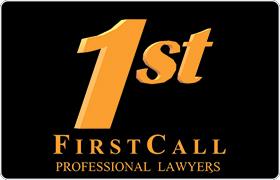Imperial Beach Criminal Lawyer, California
Sponsored Law Firm
-
 x
x

Click For More Info:
-
First Call Legal Services Corporation
530 Hacienda Dr Unit 101B Vista, CA 92081» view mapCriminal Defense Effective. Versatile. Decisive.
Our vision is to build strong, trust-based client relationships from our first handshake. Every challenge is an opportunity. You need the RIGHT PEOPLE for the job you want done.
760-690-3999
FREE CONSULTATION
CONTACTRonald J. Pullen
Alimony & Spousal Support, Criminal, Bankruptcy Litigation, Bankruptcy
Status: In Good Standing Licensed: 47 Years
Ray Antonio Estolano
Immigration, Family Law, Divorce & Family Law, Criminal
Status: In Good Standing
 First Call Legal Services Vista, CA
First Call Legal Services Vista, CA Practice AreasExpertise
Practice AreasExpertise
